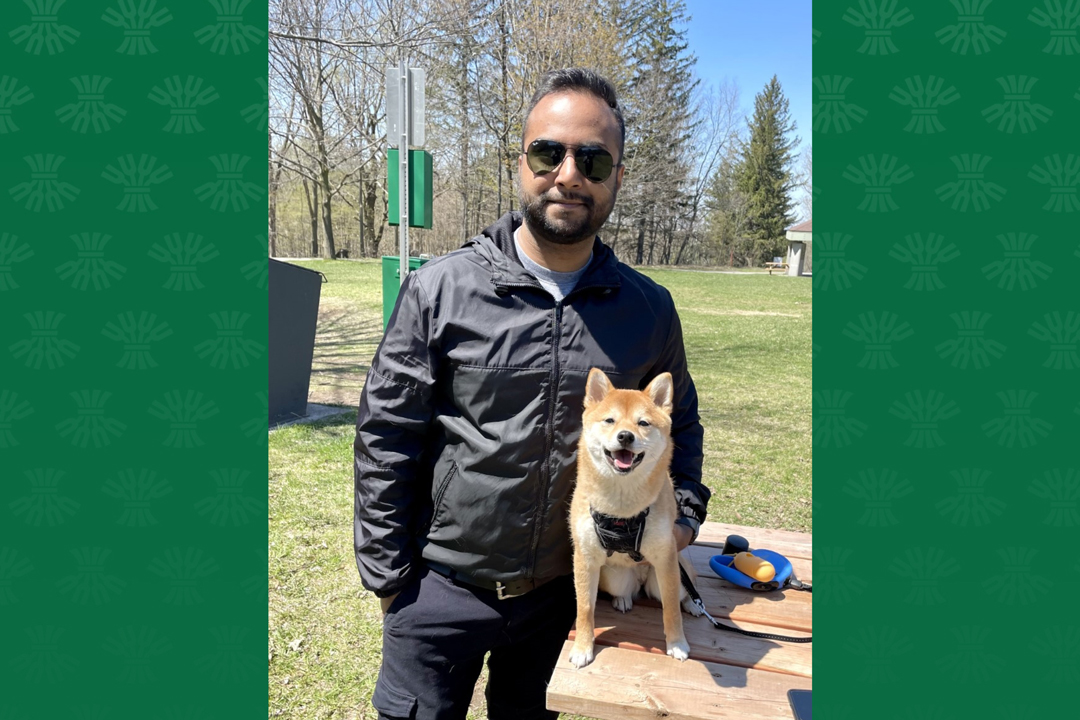
USask computer science graduate creates Rahat Yasir Award for Diversity and Inclusion
The $1,500 award will provide financial support to an undergraduate student studying in the Department of Computer Science who identifies with, or who is an ally to, the LGBTQ2S+ community.
By Shannon BoklaschukUniversity of Saskatchewan (USask) graduate Rahat Yasir (MSc’18) wants to give back to the university that helped launch his computer science career.
Yasir has fond memories of his time as a USask student, and he’s now hoping to encourage current and future students through the new Rahat Yasir Award for Diversity and Inclusion.
The $1,500 award was created to provide financial support to a continuing undergraduate student studying in the Department of Computer Science in USask’s College of Arts and Science who identifies with, or who is an ally to, the LGBTQ2S+ community, and to encourage those individuals to pursue a career in computer science.
The goals of equity, diversity and inclusion are important to Yasir, who was inspired to donate to USask after seeing scholarships and awards seeking to support women in STEM (science, technology, engineering, and mathematics). Yasir wants to see more women in STEM fields, and he also wants members of the LGBTQ2S+ community to know that they, too, belong in computer science. Starting in 2023, the award will be presented annually during spring graduation.
“One thing I noticed was there was no specific award for the LGBTQ2S+ community,” said Yasir, who wants to encourage students who are making a difference.
“This award is a thank you to them.”
Yasir came to USask after completing an undergraduate degree in computer science and engineering at North South University in his native country of Bangladesh. He then moved to Canada to study as a master’s student in the Department of Computer Science at USask.
Yasir chose to focus on computer science because of its interdisciplinary nature and because the field can have a significant impact on other fields, including medicine, communications, the arts and more.
“Computer science is a field that is designing tools or products for all other fields,” Yasir said. “Before getting into computer science, that was my understanding—whoever is the programmer, they have some sort of magic. They can build tools and make someone’s life easier.”
As a graduate student, Yasir received full funding to work with his thesis supervisor, Dr. Mark Eramian (PhD), on a Global Institute for Food Security (GIFS) project focused on plant phenotyping. Yasir was the first author on an academic paper resulting from his thesis, titled “Data-driven Multispectral Image Registration,” which he co-authored with Eramian and USask computer scientist Dr. Ian Stavness (BSc’04, BE’04), as well as Dr. Steve Shirtliffe (PhD) and Dr. Hema Duddu (PhD’14) from the Department of Plant Sciences in USask’s College of Agriculture and Bioresources.
Yasir now lives in Montreal and is the director of data science and AI at ISAAC Instruments, where he is working to design data and artificial intelligence (AI) solutions for the Canadian transportation industry. He recalls how he was able to explore the worlds of data science and AI at USask, and how he was empowered to learn and try new things as a master’s student.
“I had the opportunity to fail as well within those two years,” said Yasir. “We tried different hypotheses, we tried different algorithms within data science, and that gave me an immense amount of experience that helped me later in my industry career.”
Yasir also values what he learned from Eramian, who is committed to running a lab at USask that promotes and supports equity, diversity and inclusion. The lab also has a code of conduct.
“He taught me a lot of things about research process, algorithm designing, research methodologies—the thinking behind all those things, that was really helpful,” Yasir said. “I’m always in touch with him, and I always tell him, ‘Thank you for all these things that I learned from you. You were an amazing mentor.’ ”
Yasir now recommends USask’s computer science program to others. He said the education he received transcended technical learning; rather, what was most important to him was the critical-thinking and problem-solving skills he developed.
He hopes the new Rahat Yasir Award for Diversity and Inclusion will now make a difference in the lives of other computer science students.
“I believe with this award they will be more motivated, more encouraged, to continue their great work.”
Aranock Cooke (she/they), the president of USask's Computer Science Student Society, said she's pleased to see a computer science award that offers support to queer people, noting it "will help younger queer people know that it is a space inclusive of us."
Cooke discovered her love of programming in a high school computer class, and she has since met "so many wonderful people through computer science: peers, mentors and friends." She is pleased the new Rahat Yasir Award for Diversity and Inclusion will provide much-needed financial support to members of the LGBTQ2S+ community.
"Having support like this award can greatly assist these students in completing their degree and easing some of the financial strain," she said.

